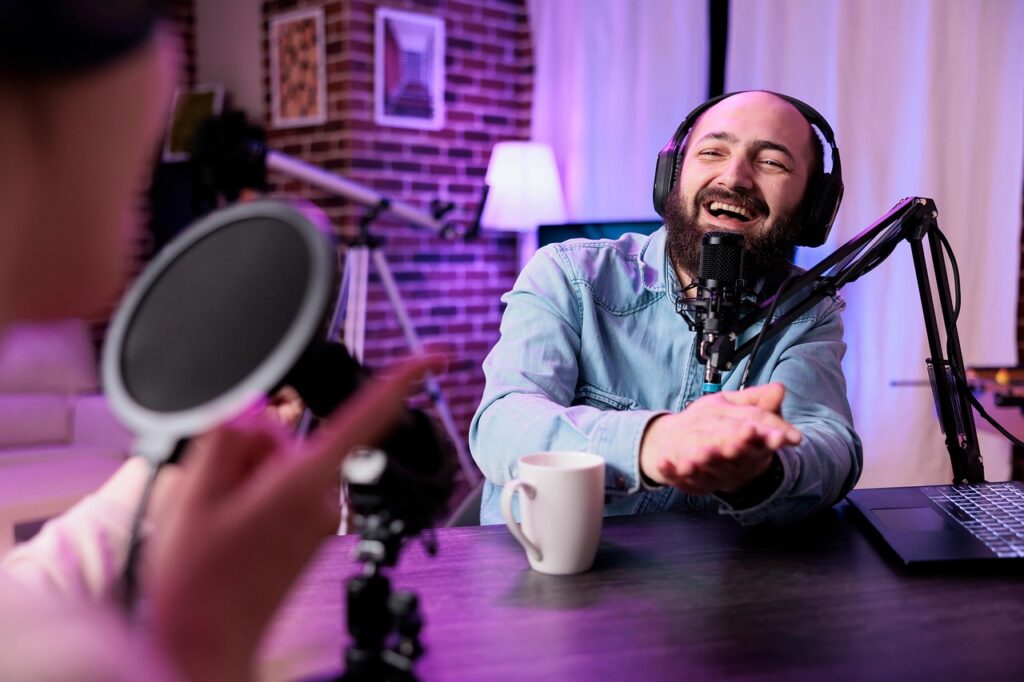
The Untold Side What Follows the Glam of Influencers
We all know that in the present digital age, influencers are new-generation celebrities. With immaculately Organised Instagram feeds and refined YouTube vlogs, they appear to live picture-perfect lives. It is not entirely true in all respects. Most of the followers presume influencers post honest opinions, but actually, their material is tightly managed. But behind the filters and brand deals, there’s a lot they don’t show you, particularly about sponsorships. I know some of them already know the term sponsorships.
Business Over Belief

The Business Behind the Beauty is Sponsorships. Sponsorships are the pillar of income. Although they’re not bad, the lack of transparency deceives the audience. So, on the Surface, they appear fair. Influencers must make money, and then brands need exposure. But there is no transparency, and it tricks followers who think that they’re receiving a genuine Opinion. Other than that, influencers endorse products not because they like them, but because they are paid. They thought that we would make money, so why care about others? In doing this Business, they employ emotional connection.
Emotional Influence: Why We Buy Without Realising

We should concur that it is quite terrible that play with someone’s Trust and Emotions. Nowadays, Audiences yearn for Authenticity and deserve it, while Influencer Marketing isn’t terrible, it is important to role recognise that when you’re sold Something. By being a conscious Consumer, we enjoy content while safeguarding Our Wallets and Trust. We should understand that the influencer’s role is to market a lifestyle, not merely a product.
And, not merely being followers, we should frequently get an idea of what we know about influencers’ day-to-day routines, personal victories and setbacks. So that this sensation of familiarity creates Deep Trust.
So the overwhelming? is that individuals end up buying based more on Emotional connections than rational needs. They convince themselves that the product is wonderful, and don’t always even know it’s an ad, not even for a Personal Endorsement. In the end, Influencers aren’t just selling a product- they are marketing an aspirational lifestyle.
So, as a conscious Consumer, we need to realise that influencer sponsorships work isn’t about assigning blame– it’s about becoming a more educated and discerning consumer.
Think First, Scroll Later: Conscious Choices in a Monetised World

When an influencer endorses a product, question whether or not it is a real endorsement or part of an advertised offer. You need to do your homework before you buy. Don’t trust someone’s media posting, regardless of how credible they appear. At times, take a break and think. By being conscious and posing the correct questions to yourself. This will cause you to make healthy choices and healthier financial decisions. As you do this, you will become acquainted with the most conscious of society as possible.
So, as my Final thoughts on this case, Influencer marketing lives off of trust, and with there being so much content that’s being monetised, we have to wonder: is this post personal, or is it a pitch? The clearer we are about social media, we have to remain.
Frequently Asked Questions (FAQs)
1. What is the role of digital creators in today’s media landscape?
Digital creators, often called influencers, impact online conversations through curated content. They engage audiences using storytelling, aesthetics, and trends, shaping lifestyle habits and consumer behavior. Their consistent presence and relatability allow them to form strong, persuasive relationships with their followers.
2. What is a brand partnership and how does it work online?
A brand partnership involves an agreement where a content creator promotes a product or service. Companies provide compensation or benefits in exchange for visibility. These collaborations blend marketing with personality, often making commercial messages feel more natural within lifestyle content.
3. How do creators make income from their online activities?
Creators generate income from multiple sources like paid collaborations, ads, affiliate links, merchandise, and courses. Most rely on brand deals to sustain their presence, turning digital influence into business by monetizing their content through audience engagement and trust.
4. Why do so many people trust online content creators?
Trust comes from consistent content and emotional relatability. Viewers often feel they know creators personally, especially when they share life stories. This bond leads to belief in their recommendations, even when the suggestions stem from commercial partnerships or brand promotions.
5. What happens when creators don’t disclose product promotions?
When creators hide promotional ties, it blurs the line between personal opinion and advertising. This can mislead audiences into believing that recommendations are sincere, even when they are influenced by compensation or a brand agreement behind the scenes.
6. How can someone tell if a post is sponsored content?
Sponsored posts may contain hashtags like #ad, #paid, or #partner. Other signs include repetitive branding, polished presentation, or sudden product focus. When content feels unusually persuasive or enthusiastic, it may be part of a commercial collaboration.
7. Why do some creators hesitate to label promotional posts clearly?
Some creators fear reduced engagement if they disclose paid partnerships. They believe audiences will lose interest if content appears too commercial. However, transparency is vital for long-term trust and is often required by digital advertising standards globally.
8. How do creators use emotion to promote products or services?
They incorporate promotions into emotional stories, making them feel authentic. Whether sharing a personal struggle or achievement, they present products as solutions or companions in that journey. This technique boosts trust, even when tied to a financial arrangement.
9. What is a parasocial relationship and why does it matter?
A parasocial relationship is a one-sided emotional bond where followers feel personally connected to creators. This bond makes audiences more receptive to suggestions, creating strong influence even when recommendations are commercial or linked to business deals.
10. What are the risks of following every recommendation from creators?
Not all products suit everyone. Following recommendations without research may lead to financial waste or disappointment. Since some promotions may prioritize profit over product quality, consumers must stay alert and base purchases on informed, independent decisions.
11. How does affiliate marketing differ from direct brand sponsorship?
Affiliate marketing rewards creators with commissions for each sale they generate. Brand sponsorship involves upfront payment to feature a product. While both involve promotion, affiliate links depend on performance, whereas sponsorship payments are guaranteed regardless of results.
12. Why do brands prefer working with digital personalities instead of ads?
Brands value the engagement and relatability creators offer. Unlike ads, content from creators appears organic and targeted, reaching niche communities. Their ability to subtly market products through daily routines increases consumer trust and purchase likelihood.
13. What benefits come from creators being transparent about paid content?
Transparency strengthens audience trust. Clear labeling of collaborations empowers viewers to decide whether to engage with promoted products. It also positions the creator as ethical and responsible, which helps retain a loyal and respectful following.
14. Can too many promotions damage a creator’s reputation?
Yes, frequent and irrelevant promotions can reduce perceived authenticity. Followers may feel exploited if they believe content is driven more by money than personal interest. Striking a balance between sponsored and organic content is key to credibility.
15. What does lifestyle marketing mean in digital content?
Lifestyle marketing promotes products by embedding them into idealized daily routines. Creators showcase items within the context of health, beauty, family, or productivity, making them seem essential to living a better or more stylish life.
16. Why do some creators promote things they don’t actually use?
Some prioritize financial gain or brand partnerships over authenticity. When creators accept deals solely for compensation, their recommendations may not reflect real use. This behavior risks misleading followers who assume genuine endorsement behind every mention.
17. How can a viewer become a more conscious content consumer?
By questioning motivation behind recommendations, recognizing promotional patterns, and doing personal research. Staying informed, rather than relying solely on curated posts, helps people make thoughtful decisions and reduces chances of being misled or oversold.
18. Are creators with smaller audiences more trustworthy?
Often, yes. Smaller creators tend to maintain more personal connections with followers. Their content may be less commercialized and more focused on community, making their recommendations seem less biased and more rooted in genuine experience.
19. What critical thinking skills help analyze digital content better?
Critical skills include evaluating intent, identifying emotional manipulation, and separating entertainment from marketing. These habits allow users to see beyond surface messages and question whether recommendations serve audience interest or primarily benefit the creator.
20. What changes are happening in online promotional practices today?
Platforms and regulators are tightening disclosure guidelines. Audiences now demand authenticity, prompting creators to be more selective with partnerships. The trend is shifting toward honest, value-driven content where quality matters more than commercial frequency.
21. What should I do before buying something promoted online?
Ask whether the item fits your needs and budget. Look for other reviews and research the brand independently. Don’t rely solely on creator enthusiasm, as it might be influenced by payment, not personal experience or benefit.
22. Can creators regain trust after promoting questionable products?
Yes, but it takes time and accountability. Publicly acknowledging the mistake, refunding affiliate profits, or apologizing can help. Consistent transparency and authentic engagement afterward may gradually restore faith among disappointed followers.
23. Why is it hard to separate marketing from personal content?
Because creators often blur the lines intentionally. Personal anecdotes and product mentions are combined to feel natural. This integrated approach makes it hard to know where storytelling ends and promotion begins, challenging viewer judgment.
24. Is all content from influencers that includes sponsorship inherently bad or manipulative?
Not necessarily. When influencers clearly disclose sponsorship, it can be informative and helpful. Problems arise when influencers prioritize sponsorship money over honesty, promoting products they don’t use. Responsible influencers balance content and sponsorship, maintaining transparency and trust with their audiences.
25. What should audiences ultimately remember about influencers and sponsorship today?
Audiences should recognize that influencers thrive on trust, and sponsorship plays a major role in their income. By staying informed and identifying when influencers are presenting sponsorships, viewers can enjoy content while protecting themselves from manipulation and making conscious consumer decisions.
Penned by Shashank Khandelwal, Research Analyst
For any feedback mail us at [email protected]
Transform Your Brand's Engagement with India's Youth
Drive massive brand engagement with 10 million+ college students across 3,000+ premier institutions, both online and offline. EvePaper is India’s leading youth marketing consultancy, connecting brands with the next generation of consumers through innovative, engagement-driven campaigns. Know More.
Mail us at [email protected]
Nobis atque id hic neque possimus voluptatum voluptatibus tenetur, perspiciatis consequuntur. Lorem ipsum dolor sit amet, consectetur adipisicing elit. Minima incidunt voluptates nemo, dolor optio quia architecto quis delectus perspiciatis.
Lorem ipsum dolor sit amet, consectetur adipisicing elit. Minima incidunt voluptates nemo, dolor optio quia architecto quis delectus perspiciatis. Nobis atque id hic neque possimus voluptatum voluptatibus tenetur, perspiciatis consequuntur.